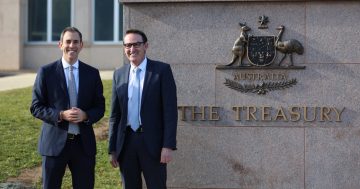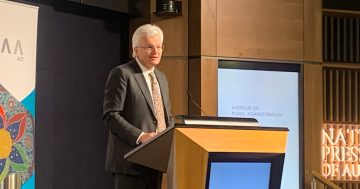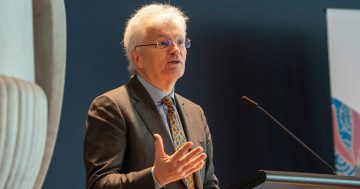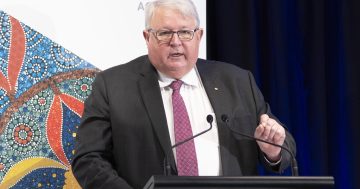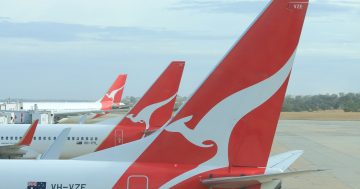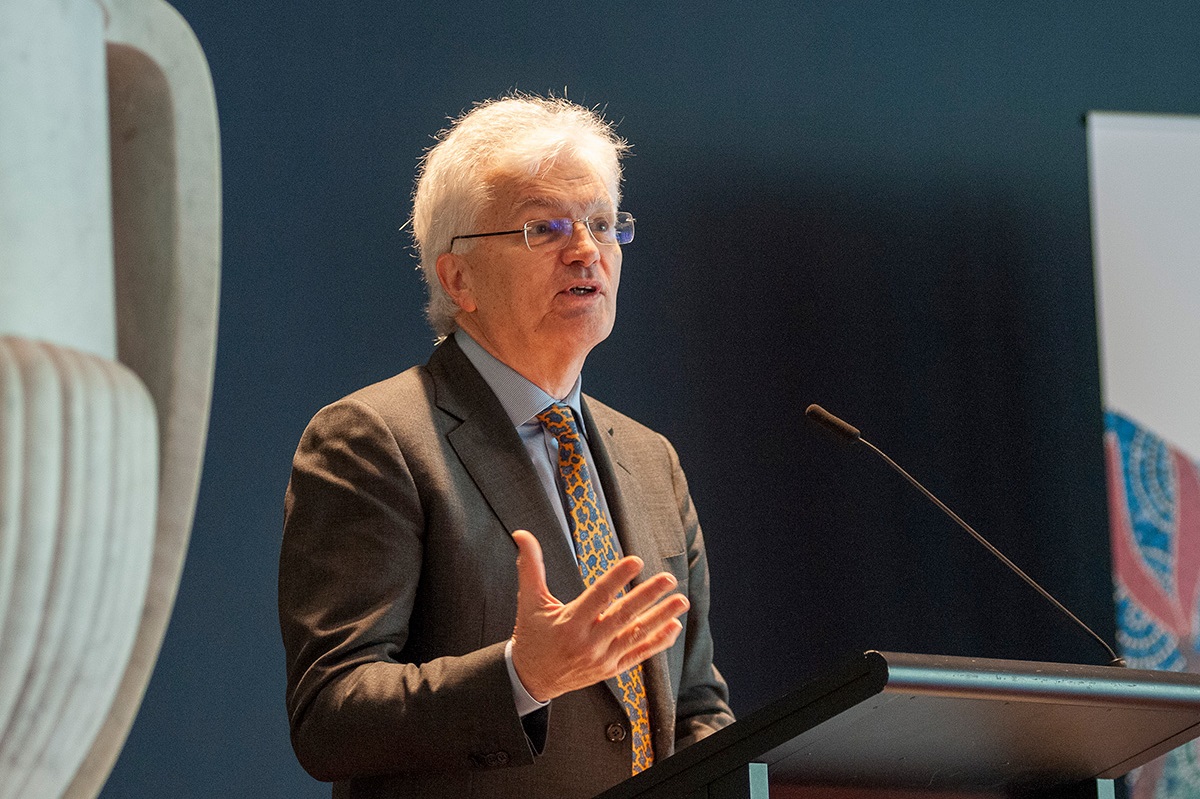
Secretary of Prime Minister and Cabinet Glyn Davis addresses the IPAA. Photo: IPAA.
Australia’s top-ranking public servant says public services must return to a personal and simplified model instead of managing outsourced or privatised contracts.
In the annual address of the Secretary of Prime Minister and Cabinet to the Institute of Public Administration Australia (IPAA), Secretary Glyn Davis said the future of public administration would lie in a ‘place-based approach’ where communities have greater control over how public services are allocated.
While he didn’t advocate for many of the services and agencies that have been privatised or outsourced in the past few decades such as airlines, banks, phone services and employment services to be placed back under public administration, he did say there was scope for a more direct provision of government services instead of just managing contracts.
Citing the former Commonwealth Employment Service (CES) as an example, he said there was genuine pride in the service the CES used to offer.
“An ABC feature story last year featured some former CES officers here in Canberra,” he said.
“They recalled rushing down to Vinnies to buy up all the white shirts for clients who needed clothes for interviews. That’s dedication. That’s caring about people.”
He added that there had been some benefits of outsourcing.
“Outsourcing introduced the APS to some cutting-edge technologies and new ways of thinking about service delivery,” he said.
“Contracting promised an attractive alternative to those CES counters and lines, with more responsive systems and better value for money.
“The Government Service Delivery roundtable in August mirrored wider speculation about where public administration is going – the merits of government delivery against private provision, the need for government to be an astute and capable manager of contracts, the risk that a network approach struggles to provide integrated services for clients with multiple and complex needs.”
He said a UK study had found that, while outsourcing delivers meaningful outcomes in some services such as waste collection and cleaning, there were mixed results for frontline services like prisons, hospitals and employment services.
Secretary Davis also cited the work done by Services Australia staff in the provision of Medicare, Centrelink and other services under its umbrella.
“I had the privilege of meeting some of the Services Australia team earlier this year, starting in a customer service centre at Woden [in the ACT],” he said.
“The enthusiastic centre manager showed colleagues and me the subtle design features to enhance service delivery – a friendly meeting point on arrival to triage needs, computers for those who might need to access online information, an offer to schedule appointments so people do not need to wait around, and an office expertly designed to protect the privacy of clients, including secluded rooms for anyone in distress.
“Behind the public area, a committed team worked long hours to address inquiries.
He described the Services Australia vision as one looking to ‘make government services simple so people can get on with their lives’.
“The team members I met were proud of the support they provide every day to fellow citizens,” he said.
“The Services Australia crew itself was an inspiring cross-section of Australia – diverse, experienced, committed, inventive.
“Here, I thought as I walked around the centre, is the future of our APS.”
While he didn’t mention it, Government Services Minister Bill Shorten’s recent appointment of former NSW Customer Service Minister Victor Dominello to head up the myGov Advisory Group should go a long way towards achieving that vision.
Mr Davis also highlighted how some local communities empowered themselves to deliver services. Citing the Maranguka Just Reinvest program in Bourke in Western NSW, he said the “community, government and philanthropy pool funds to reduce incarceration and crime, notably domestic violence”.
“Government follows, not leads,” he said. “The model works because NSW chose to follow, not lead.
“A place-based approach requires the public sector to cede control over inputs and outcomes,” he added. “This does not sit comfortably with electoral cycles or with ministers keen to make announcements. Instead, it makes officials truly servants of the public.”
He said other Indigenous communities also had very clear ideas of what their communities need, and many expressed frustration at a lack of coordination between all levels of government.
“They are ready to lead,” he said. “What they want is a say in local decisions … a voice even.”
He said such place-based approaches call into question much of what is taken for granted about public administration.
“It extends an invitation for fresh thinking.”
Original Article published by Andrew McLaughlin on Riotact.


